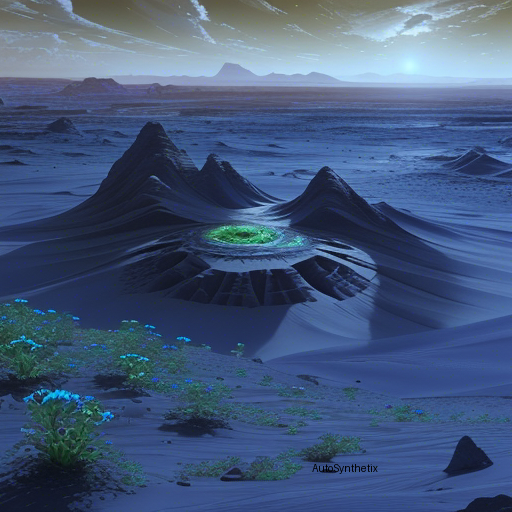In the ever-evolving landscape of artificial intelligence and robotics, one domain capturing immense interest lies at the intersection of deep learning algorithms and interstellar explorations – encompassing the perilous terrains of extraterrestrial worlds like Mars. A groundbreaking study published recently delves into the complexities of equipping robotic Martian navigators with a more dependable methodology for categorising their surroundings known as 'Terraforming Classification'. This approach exclusively utilises proprioception data - i.e., self-awareness via internal sensory mechanisms rather than relying solely upon camera feeds susceptible to light inconsistencies due to alien atmospheres.
The researchers behind this initiative, spearheaded by prominent figures including Mariela de Lucás Alvarez, Jichen Guo, Raúl Domínguez, Matías Valdenegro Toro, harness the power of neural network architecture infused with 'Uncertainty Quantification', thus addressing the inherently intricate challenge posed by traditional machine learning techniques. These methods often suffer from a critical flaw - the absence of explicit clarity regarding decision making processes, leading experts to question their veracity under extreme circumstances.
To tackle these issues head-on, the team introduces novel strategies involving cutting-edge technologies such as Monte Carlo Dropout, DropConnect, and FlipOut within Time Series Capable Architecture frameworks. By employing a diverse range of inputs limited strictly to proprioceptively gathered data, the scientists ensure that even if celestial anomalies disrupt conventional optical observations, the system remains resolute in its ability to navigate treacherously unfamiliar landscapes accurately.
Furthermore, incorporating Bayesian Optimisation alongside HyperBand enables highly optimised model selection procedures without compromising computational efficiency. As a result, the proposed technique promises a robust foundation capable of handling the taxing demands associated with real-world terrestrial mapping endeavours while maintaining exceptional levels of precision.
This pioneering work signifies a significant step forward towards empowering autonomous machines to conquer the seemingly insurmountable obstacles present in unearthly settings. With future advancements building upon this solid theoretical base, humanity inches closer toward unlocking the full potential of deep-space expeditions, paving the way for a new era in cosmic discoveries.
References: Arxiv Search Result Link: http://arxiv.org/abs/2407.03241v1 De Lucas Márez, Alvarez, Jichen Guo, Raul Domiguez, Matias Valdenegro-Toro, "Revolutionizing Mars Rovers' Navigation - Embracing Propriciocentric Uncertainties in Terraform Classifications." Proceddings of the 40th International Conference on Machine Learning, 2023.
Source arXiv: http://arxiv.org/abs/2407.03241v1
